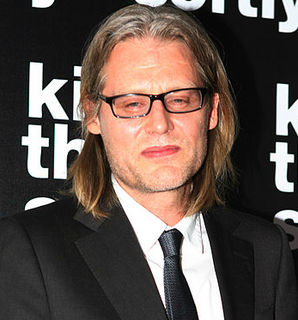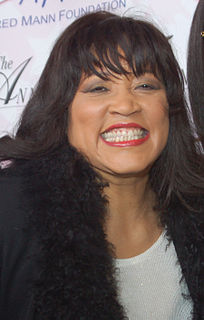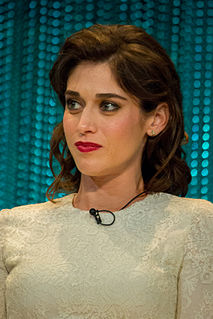A Quote by Jason Reitman
Directing is a reactionary job more than a creation job. The job is to react whether it's moment one, the first time you read the script or see an article or read a book or notice something happen on the street and have an idea for a movie, and it just continues from there on in. You're just reacting to dialogue, a performance, an audition, a headache, a piece of furniture, a piece of clothing.
Related Quotes
I never need to find time to read. When people say to me, ‘Oh, yeah, I love reading. I would love to read, but I just don’t have time,’ I’m thinking, ‘How can you not have time?’ I read when I’m drying my hair. I read in the bath. I read when I’m sitting in the bathroom. Pretty much anywhere I can do the job one-handed, I read.
I would be lying, if I said that sometimes it is just a job that you show up for because you're getting paid, and that's important, too. But, if you can be in a state of mind where you enjoy your job, whether it's just a job, or it's actually cathartic for you, or it's something personal. I think it would be much easier to be content with doing a good job.
I started in theater when I was 14 in the Henry Street Playhouse on the Lower East Side in New York. You hustle, you beat the sidewalk, the pavement - audition, audition. I just started working around town everywhere. I mean everywhere - the Village, Harlem, you know. Brooklyn Academy Of Music. Just job after job.
If you don't have the good fortune to work a lot then you take any job you get offered, whether it's a good job, fun job, a bad job, horrible job, whatever, you just take what you need to take. But I'm lucky in that - at the moment anyway and hopefully forever, but who knows - I get the chance to pick jobs for the kick of it and the fun.
What's interesting as a director, and even studio executives don't understand this, is that if you're directing a $200 million movie with six million people, it's the same as directing a $25,000 movie with three people. The director's job is, "You stand there and do that," or "This is the shot I want." The logistics change, but the job remains the same. And I enjoy the job.






































